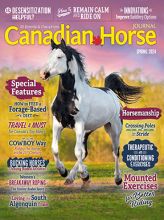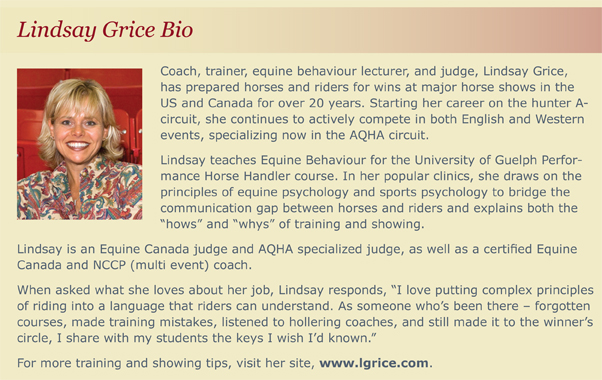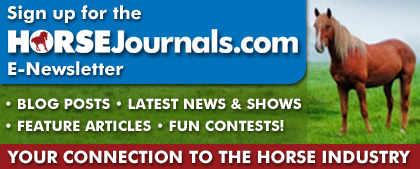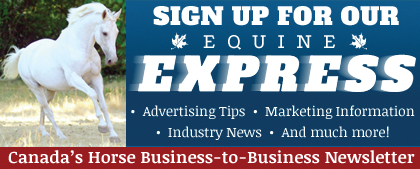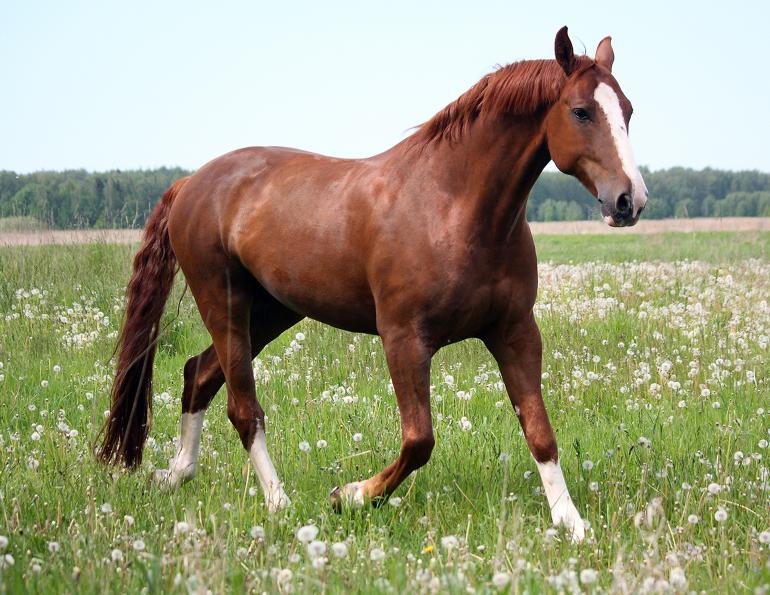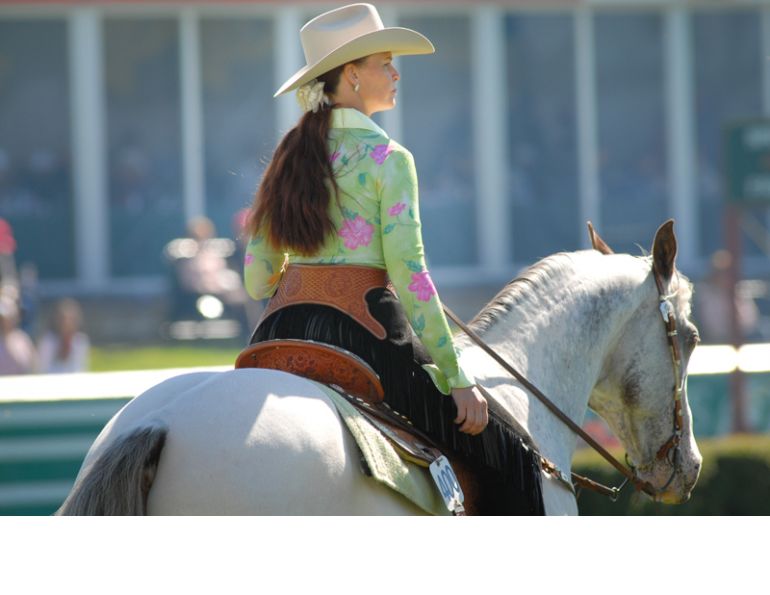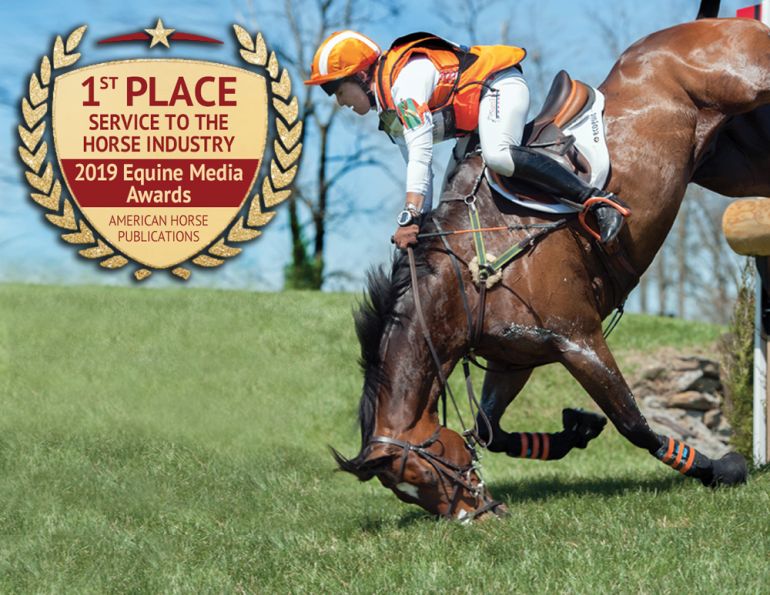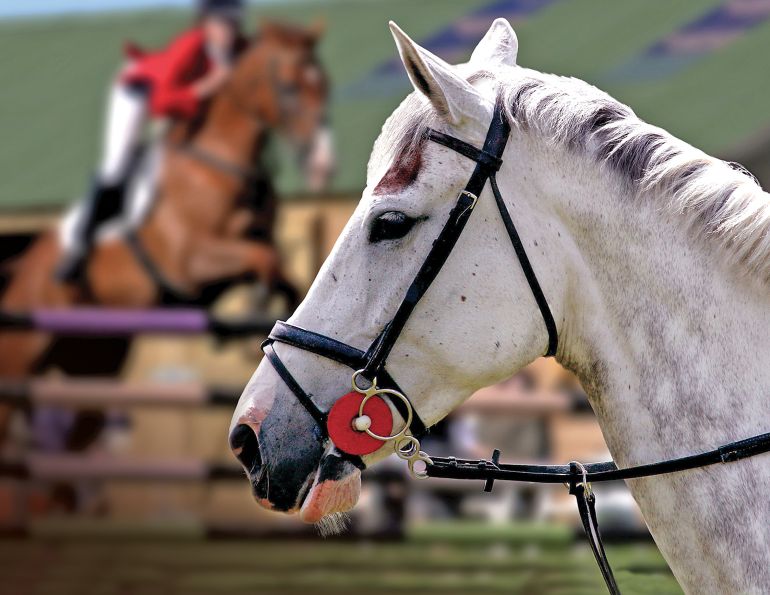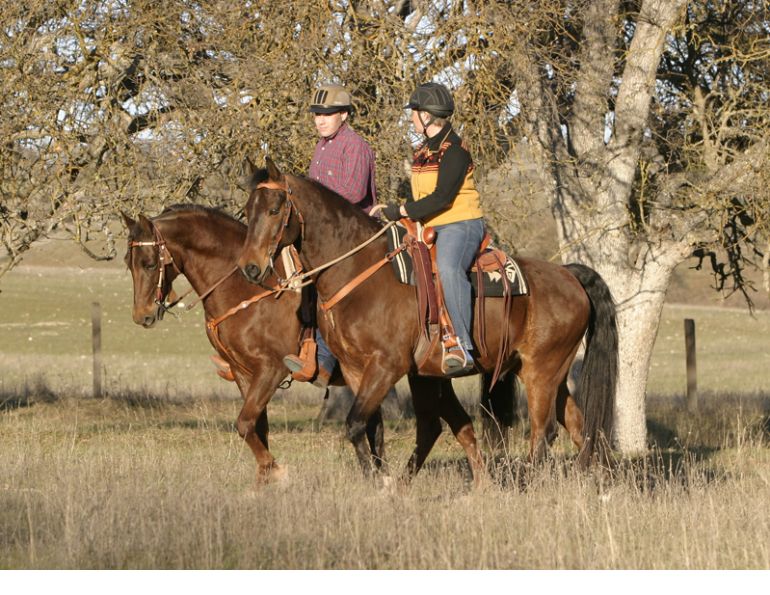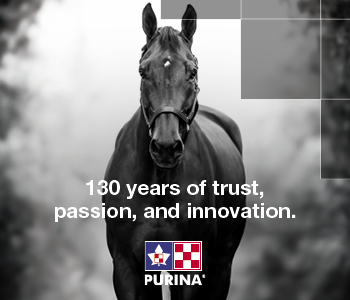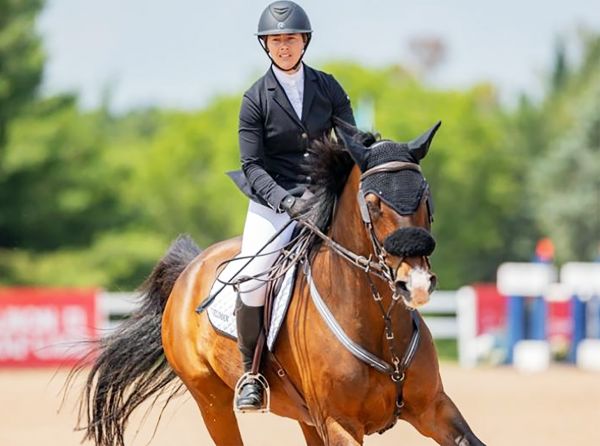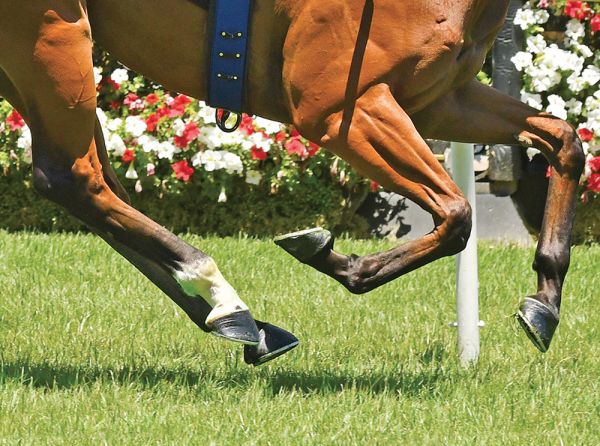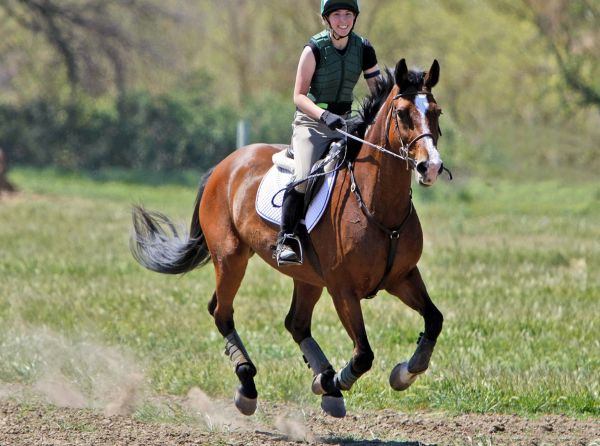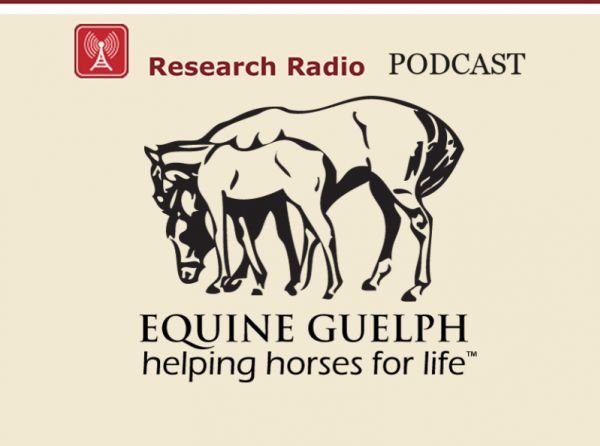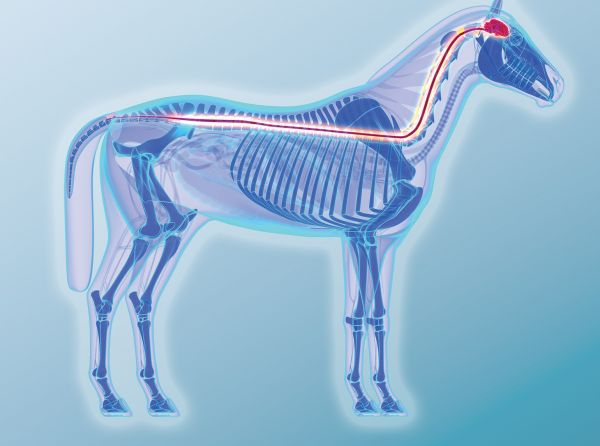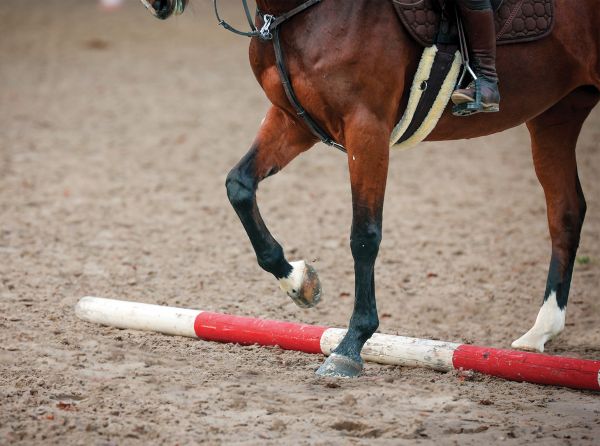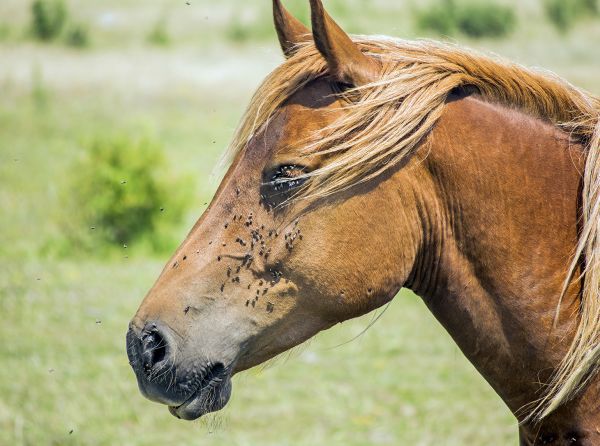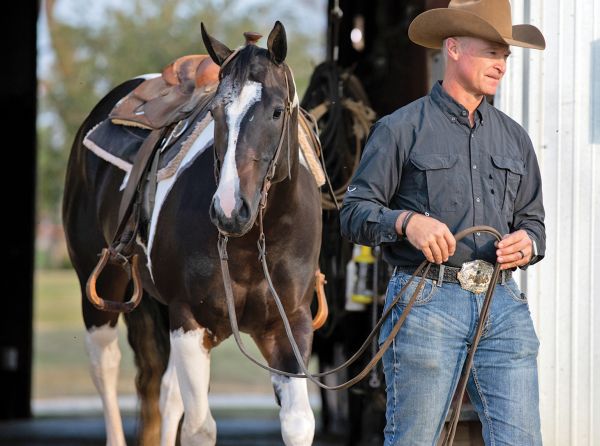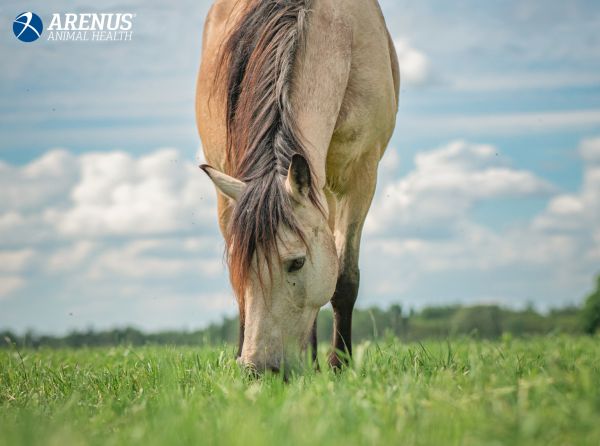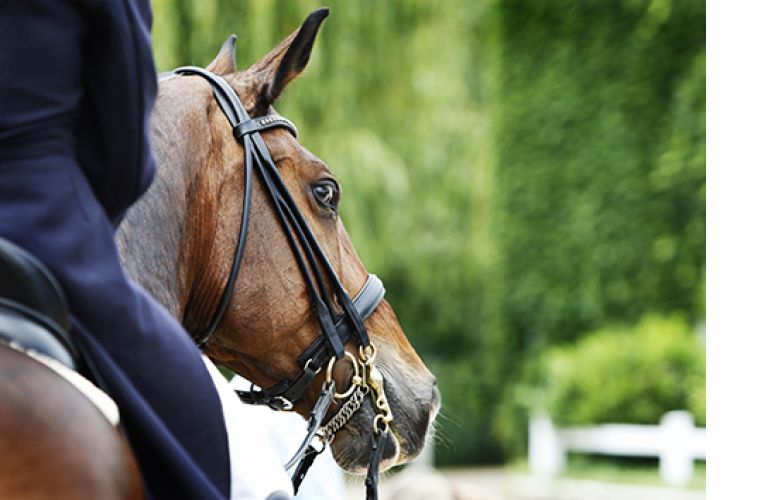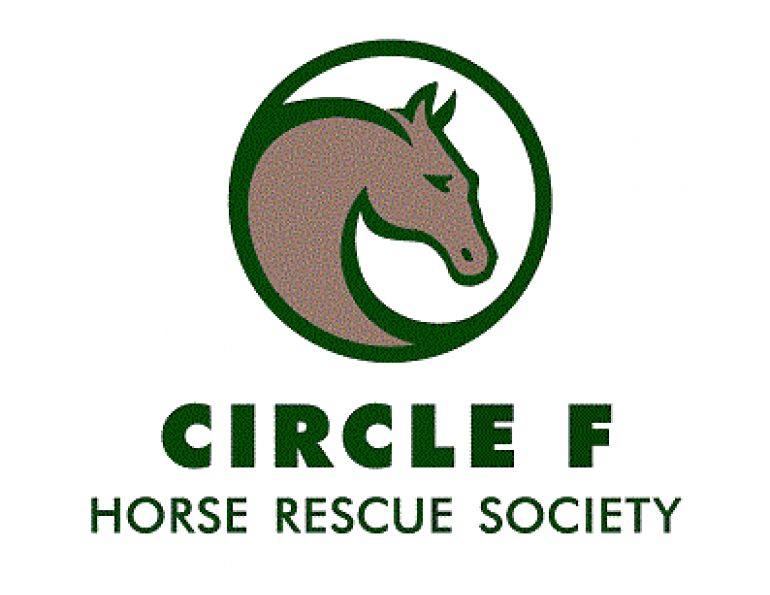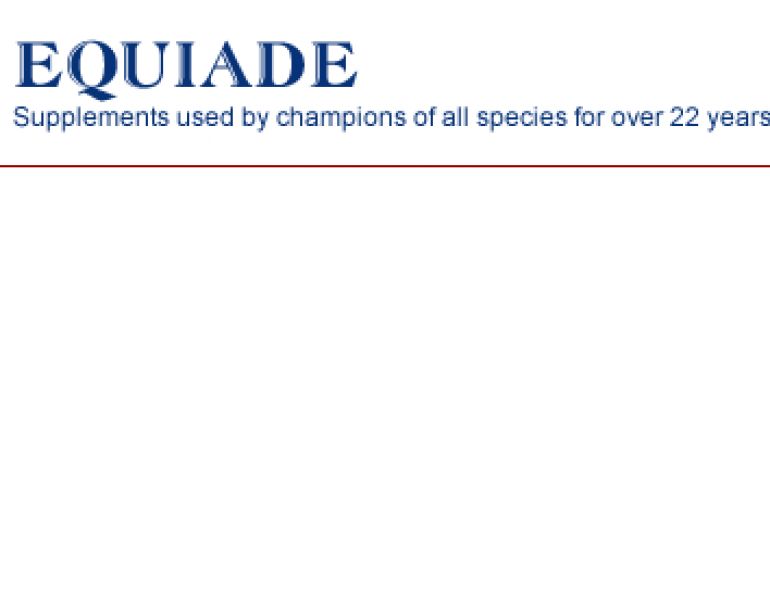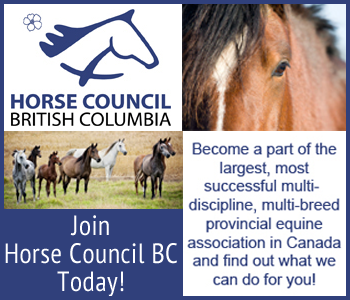By Lindsay Grice
Q I really struggle with horse show nerves. This frustrates me because my job requires me to speak in front of groups, but I find (particularly in pattern classes) that I freeze, become ineffective, and everything seems like a blur.
A Don’t feel alone — many very well adjusted, capable people feel paralyzed in the show ring. Although confidence improves the more often you show, it is helpful to take an honest look at the source of your nerves (what’s the worst thing that could happen, and would it really be that bad?), and block out the distractions. Ride in a bubble of narrower focus for now. This bubble can expand to include more factors as you gain experience.
#1 – Block out the audience. Yes, your performance is being assessed (more about that later) but, for now, pretend you’re not. Disregard the onlookers, the judges, and your competitors who may appear to look so good and better than you. When I ask my students what they’re most afraid of, the response is often “making a fool of myself.” When we face the sad truth that people don’t really care about or remember our performances as much as we think, it can be freeing! “Embarrassments” happen to several people in every class at every show; how many of them do you remember from this past show season, other than your own? When a major mishap does occur, most of the audience reacts with empathy rather than scorn, anyway.
#2 – Block out the things you can’t control. The footing is deep. It’s starting to rain. The judges haven’t placed me all day. My horse spooked in the exercise ring. I had to borrow someone else’s riding jacket and it doesn’t fit properly. My horse just rubbed out his braids in the trailer. The pattern calls for a flying change and my horse can’t do one. I forgot my gloves in my tack box. I’m not connecting with my coach. Some things you can control later, but not right before your class, so let them go until you can remedy the problem.
|
If you are nervous about showing, try to block out things you can’t control, and focus instead on constructive and positive thoughts. |
#3 – Block out detail overload. Out of the multiple skills that we cover in a riding lesson with my students, I will select only a few to work on in the pre-class warm up, and only the key skills to remember in the in-gate and to recite in the class. I remind eager parents to resist the urge to overload their kids with further prompts of “and remember...” before competing. Adult riders tend to overload themselves — especially the perfectionists.
#4 – Block out history. This falls into the same category as those things we can’t control — at least before the class. I had an argument with my wife yesterday. My father never praised me. Kid’s always made fun of me in high school. I’ve always struggled with my weight. This judge has never placed me at previous shows. My alarm didn’t go off this morning.
After blocking out all the unnecessary thoughts, fill your bubble with just you, your horse, and the things you can control: constructive thoughts, confident posture, and a few key skills to remember. Speak positively, look upon challenges as opportunities to develop yourself and your horse, and act confidently (chin up, shoulders back) no matter how you feel. I plan with my students several convenient spots within a pattern to momentarily exhale, relax their muscles, and remember key words in their game plan.
#5 – Think outside the box. As you become more seasoned and the butterflies die down you can enlarge your bubble. You now become aware of the judges and consider how you might present your horse to them in the best possible light, creatively disguising his flaws. You will consider your competitors, take in their strengths and weaknesses, and position yourself accordingly. Professionals must consider their audience as potential clients; I am keenly aware that I am a role model for others who are watching, both in the way I conduct myself and in the choices I make.
In this light, losses and problems can be seen as opportunities to model graciousness and a steady perspective.
You will be able to include and adapt to more factors — even to use them for your advantage: poor footing, a crowded show pen, hot weather, or being first in the working order.
Keep your goals conservative, and before you know it, you will be able to come out of the ring and give a well thought out assessment of your pattern, one manoeuvre at a time, to your coach.
Main Article Photo: Pam MacKenzie Photography
This article originally appeared in the October 2008 issue of Pacific & Prairie Horse Journal.


